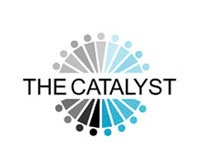Right now, Congress has the opportunity to make two small fixes that will protect seniors in the Medicare Part D donut hole and save them money on out-of-pocket costs for their medicines. These fixes would leave seniors with high drug spending better off while stabilizing the program for the long-term.
In 2020, a Part D Cliff looms for seniors as the donut hole will suddenly increase by $1250, quickly raising out-of-pocket costs for the most vulnerable seniors. At the same time, changes made in the Bipartisan Budget Act (BBA) earlier this year leave seniors in the Part D donut hole paying 5 times more than insurers for the brand medicines they rely on.
But Congress can protect the most vulnerable seniors and address both of these problems right now by fixing the Cliff and restoring balance to payment responsibility in the donut hole. Together these two policy fixes would reduce out-of-pocket costs for seniors with high drug spending more than the BBA changes alone, leaving them better off and, in 2020, saving them up to 7% on their out-of-pocket costs.
When Congress passed the BBA in February, it made changes to Medicare Part D that threaten the program’s successful competitive structure and left seniors paying five times more than their insurers for coverage of brand drugs in the donut hole.
While these changes closed the donut hole a year early, they went much further by lowering insurers’ payment responsibility to just five percent of costs in the donut hole for brand medications. This undermines Part D’s market-based structure by reducing insurance plans’ stake in the program and therefore reducing their incentive to manage program costs, while also creating a significant imbalance in payment responsibility.
At the same time, unless Congress acts before 2019, the looming Part D Cliff will raise out-of-pocket costs suddenly for the most vulnerable seniors with significant health needs.
When Part D was created, it included a catastrophic phase of coverage where seniors’ out-of-pocket costs would be reduced once their total medicine costs reached a certain amount. Each year the amount of spending required to move into the catastrophic phase increases slightly. A measure originally included in the Affordable Care Act temporarily slowed the growth rate of this increase. But now that measure is set to expire at the end of 2019, reverting back to pre-ACA levels overnight. This will result in a sudden increase in out-of-pocket costs for seniors in the donut hole who will have to reach a much higher spending threshold to get into catastrophic coverage.
By fixing the Cliff and enacting a fix that restores balance to payment responsibility in the donut hole, Congress can act right now to both protect seniors and save them money on out-of-pocket costs.



